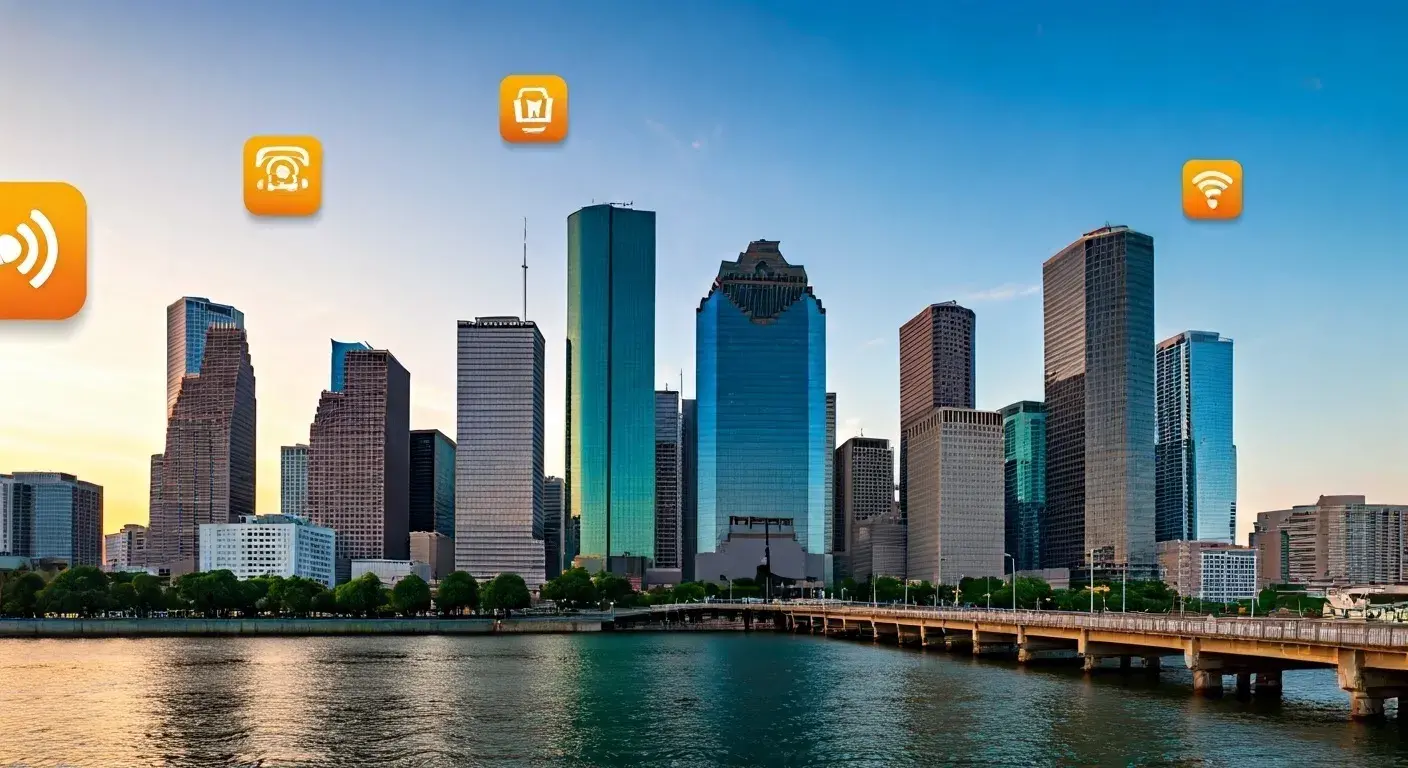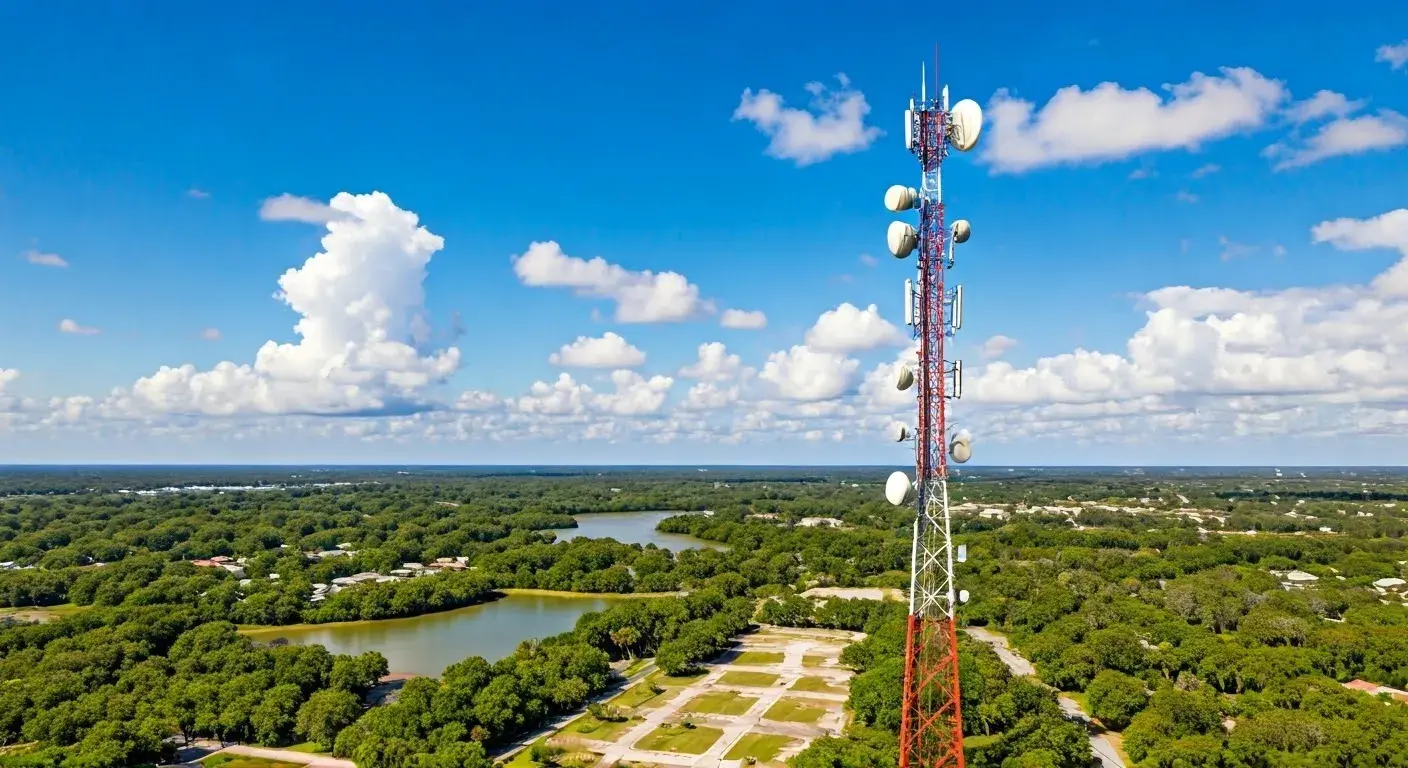
Satellite internet has also gained much popularity for the provision of internet connection in rural areas where cable or fiber optic connection is not available. However, satellite internet is not cheap, or at least not as cheap as people might expect. This article will explain what goes into the pricing of satellite internet and list average prices so you know what to look forward to.
What is Satellite Internet?
Satellite internet also known as broadband internet is the service of internet through communication satellites in space. The antenna installed at your home sends request signals back to the satellite, which in turn transmits those signals to a ground station. The ground station then transmits the information you have requested through the satellite to your dish. This helps you to be able to gain an internet connection without having to rely on phone cables or infrastructure on the ground.
The satellite dish has clear and uninterrupted visibility of the southern sky where essentially all internet communication satellites are positioned over the equator. Trees or other mountains in between your home and the satellite can cause the signal to be weak or even unavailable. So satellite internet is most effective in flat terrain country regions.
Factors That Impact the Monthly Cost:
There are a few key factors that affect what you’ll pay per month for satellite internet access:
- Mobile Internet speed – Most of the providers have plans that contain varying quantities of high-speed data each month before the speeds slow down. There is a correlation between data allowance and monthly fees, where the former corresponds to the latter. Currently, the data allowance for the ordinary satellite Internet is approximately 50 GB of traffic per month.
- Download /upload speeds – by increasing the internet speed of the firm, you are likely to incur higher expenses. Satellite connection offers download speeds of 15-25 Mbps while its upload speeds are slightly lower, at 3-8 Mbps since satellite cannot match the cable speeds.
- Equipment fees – Each satellite internet service provider charges a monthly fee for the satellite dish/router they will position in your home to access internet services. This ranges from $10 to $15 every month.
- Contract commitment – It is observed that when customers commit to a contract of 1-2 years they are given a better deal of $10-$20 per month than what it would have cost them to pay month by month.
- Subscribing to multiple services –There is usually a way of getting some discount if you subscribe to satellite TV and Internet services. Other possible future bundles could include phone service where new satellite offerings may be included in the future.
Average Satellite Internet Costs:
Satellite internet providers such as HughesNet and Viasat offer standard plans that range between $50 and $150 per month.
Here’s a breakdown of average monthly costs by speed tier:
Speed Tier Average Monthly Cost
Basic (12-25Mbps download speeds): It costs between $60-80. – The accessibility of the restaurant through public transport is quite good – there is a bus stop nearby.
Medium (25-35Mbps): $80-120
Premium (35-50Mbps): $130-150
The advertised speed tier indicates the speeds that you are likely to experience when the network users are few, and there is little congestion. However, during the nights when most of the users are likely to be using video and consuming bandwidth, you can be offered slow speeds.
But what does that average monthly cost range hide? Here’s an example bill breakdown for a standard 25 Mbps satellite internet plan:
- - Data usage: 5 users, limited traffic allowance of 25GB per month - $60
- Rental fee on the equipment used - $10
- Standard download speed: 25 Mbps - Comprise
- Upload speed: 3 Mbps - Offered
- 24 months contract - 20$ off
Total average monthly expense of 50
As seen in the above example, agreeing to subscribe to a contract term can invariably shave off between $10- $20 on the monthly charges usually. Additional charges like Equipment rental fees sum up to $10- $15 on average per month. The standard monthly charge primarily includes the basic data usage allowance set for each customer.
Exceeding the monthly allowance of data leads to costly overcharges or very low speeds on the internet. So the choices of the appropriate plan depend on the amount of data you consume within the given calendar month.
Can I Be Charged Any Other Satellite Internet Fees?
In addition to the monthly service charge, satellite internet providers may also offer some one-time charges at the time of signing the contract and during its expiration.
These fees can include:
- Setup fees – Fees associated with the professional installation of the dish/equipment, normally ranging between 99-199 dollars.
- Activation fee –Customer acquisition cost between $10-$100
- Early termination fees – If you decide to cancel the service in advance, then be prepared for a single charge of up to $400.
- Deactivation fees – Fee if you remove the satellite dish after cancelation, about $50.
- Therefore, satellite internet service is considerably expensive, and you will need to cater for these additional charges when making your budget. These activation and early termination fees are in a way a penalty that you have to pay for not using the service for the full period of your contract.
What type of Internet does Satellite cost in comparison to the other Internet?
Compared to ground-based internet services like DSL, cable, or fiber optics, satellite tends to be more expensive for a few reasons: Compared to ground-based internet services like DSL, cable, or fiber optics, satellite tends to be more expensive for a few reasons:
- He noted that to an extent, infrastructure costs are passed through the monthly fees from companies as it is costly to build and launch satellites into space.
- Equipment Costs – Every customer requires a satellite dish, and other equipment to make the connection, and these form part of the investments that are recoverable from the clients.
- Data Transfer Cost – In getting any customer data, it has to travel 45,000+ miles every time to space and vice versa. Continuing his argument, the author claims that space network bandwidth leads to increased consumption expenditures.
- Lack Of Competition – Currently there are only two consumer satellite internet providers in North America, hence, there is no competition to pressure companies to provide cheaper services in rural areas.
Nonetheless, the satellite may still be cost-effective when compared to the expensive fiber or cable deployment necessary to deliver ground-based internet to some remote rural regions.
As for the future developments in satellite technology, and the new satellite mega-constellations mentioned in the SpaceX Starlink plan, increased competition might further enhance the provided satellite internet value proposition.
Key Takeaways:
When deciding on satellite internet services, look for offers at different providers, to get the best deal. However, you will expect to pay between $50 and $150 a month for a typical residential satellite Internet connection.
Account for all the initial charges and recall that the amount of data a plan comes with can be limited and the connection speed may slow down during peak hours. Take time and research whether satellite provides the right speed and bandwidth for your household before you commit yourself to any agreement.
It will also ensure that your expectations are well placed should you choose to compare satellite plans using these tips. Understanding common satellite internet prices and associated expenses is crucial to selecting the most suitable home internet connection service if you live in a rural area.






